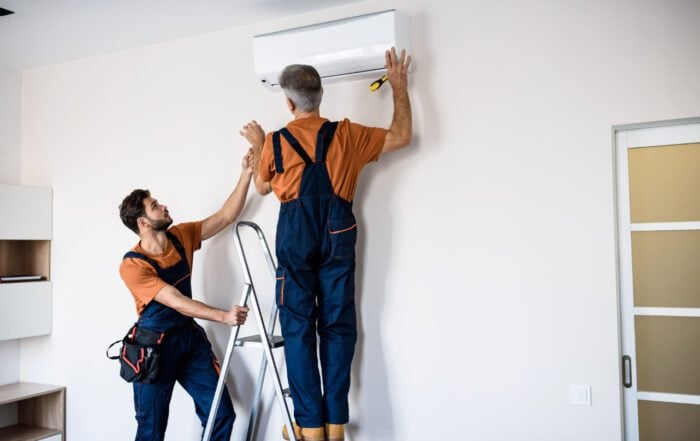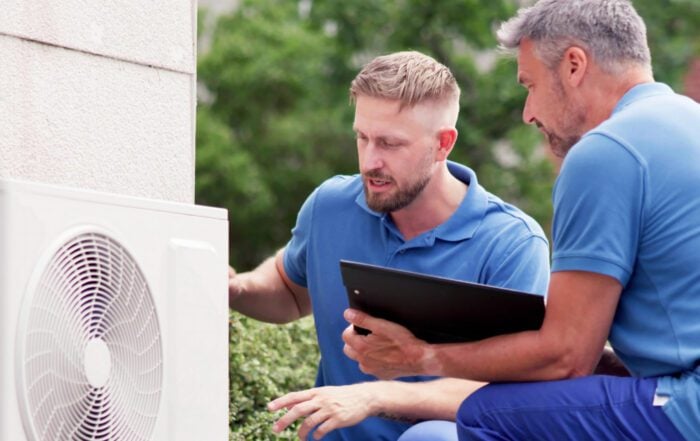Choosing a heat pump for your cooling and heating needs is a wise decision for energy savings and home comfort. Use this how-to guide as a first step for comparing different types of heat pumps, superior advanced features, and efficiency ratings.
Selecting a heat-pump system
All heat-pump systems operate by the same mechanics of moving heat rather than making heat, no matter which heat-energy source is used — ground, water or air. (Technically, dual-fuel systems are the exception, explained below.) It’s this process of heat exchange that gives heat-pump systems great energy efficiency.
In short, airflow instigates refrigerant to extract heat (cooling) or release heat (heating) at the indoor evaporator. The heat is released or extracted at the outdoor source (ground, water, or air).
- Geothermal heat-pump systems are the most efficient of all heat pumps. They also carry the highest initial investment. Geothermal systems use the ground or ground water as their heat-energy source, which maintains a stable temperature for excellent efficiency all year long.
- Air-source heat pumps are the most common heat-pump systems in use. There is an indoor unit, often located in the basement, attic or closet, and an outdoor unit. Since air-source heat-pump systems use indoor and outdoor air for heat exchange, efficiency falls off sharply when the outside temperature falls below 40 degrees. Backup electric elements are commonly used to augment heating.
- Dual-fuel heat-pump systems are air-source systems combined with a backup fuel-burning heating source, often a furnace, rather than using inefficient electric elements. Dual-fuel systems are excellent choices for northeast Ohio homeowners.
Advanced features
Two-stage scroll compressors and variable-speed blower motors are common advanced features found on high-efficiency heat pumps. These components last years longer than standard components, use less energy, require fewer repairs, and deliver superior performance.
Efficiency ratings
Use SEER (seasonal energy efficiency ratio) for cooling efficiency, and HSPF (heating seasonal performance factor) for heating efficiency to assist you in calculating lifetime costs of different heat-pump types and models. SEER and HSPF ratings are found on EnergyGuide labels.
For professional assistance, contact the HVAC experts at Stack Heating & Cooling. We serve homeowners in northeast Ohio.
Our goal is to help educate our customers about energy and home comfort issues (specific to HVAC systems). For more information about heat pumps and other HVAC topics, download our free Home Comfort Resource guide.
Stack Heating services Cleveland, Ohio and the surrounding areas. Visit our website to see our special offers and get started today!
Have Any Questions?
If this is an emergency please call 440-937-9134.
Otherwise, please feel free to call us or submit this form to schedule an appointment for service or request an estimate. We will contact you shortly!



